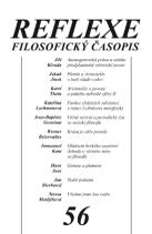God as the Place of Ideas in Malebranche’s Philosophy
The article focuses on Malebrache’s thesis that ideas, taken as the immediate objects of any finite mind’s cognitive acts, are „located“ in God. Section One: It is often overlooked that in the thesis under review, the term „idea“ is used by Malebrache in the same sense as in Descartes, viz. as referring to particular cognitive acts that have the character of inherent representativeness. This helps situate the thesis against the background of the Malebranche-Descartes dispute concerning the extension of the class of inherently representative entities: for Malebranche, only certain contents „in God“ – and by no means, as Descartes has claimed, particular cognitive acts of finite minds – enjoy such character. Section Two: Concerning the central argument submitted in Book III of The Search after Truth, I try to show that Malebranche’s rejection of Descartes’s position is primarily based on, first, his reductive notion of the relation of representation, and second, in his insistence that the relation of eminent containment – as employed by Descartes in crucial contexts – be conceived strictly in terms of ontological substitutivity.
Backlinks: Reflexe 33
